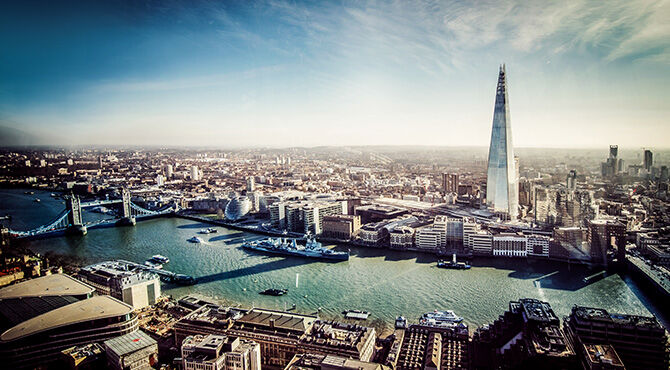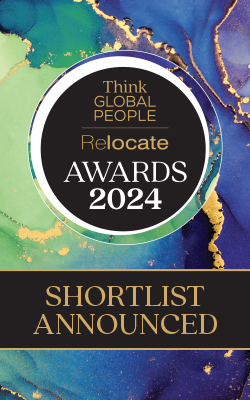UK trade talks highlight priority markets: relocation hotspots after Brexit?
A targeted strategy that hones in on essential trading countries is the UK’s best chance of a decent Brexit deal, suggest policy experts. David Sapsted examines the mad rush of global trade discussions that have taken place in recent months.

– the must read for HR, global managers and relocation professionals.
Earlier this year, the then Foreign Secretary Boris Johnson claimed that nations around the globe were “already queueing up” to do free trade deals with the UK once the nation had left the EU.Mr Johnson has, of course, since departed the hierarchy of the political establishment in a row with his government colleagues over the Brexit trade deal that Britain is trying to do with the EU. And the queue he talked about no longer seems quite as long as he intimated.True, China, the US and Australia are among those who have expressed a willingness to do some sort of deal but, as always, the devil is in the detail...and, as yet, there simply are no details. Besides, while International Trade Secretary Liam Fox recently expressed confidence over the prospects of negotiating a deal with the US - though he could not say when - he also effectively ruled out any agreement with China while it was involved in the current trade war with Washington.While China expresses a willingness to open formal trade talks with the UK, Zhang Ming, the nation’s envoy to the EU, has specifically ruled out the possibility of an agreement if Britain leaves the bloc under a no deal scenario, which some Brexiteers are now pushing for. And even the Australian situation is complicated by the fact it is currently in the throes of negotiating a trade deal with the EU, which the UK will no longer be part of after March next year.Prolonged uncertainty Quite apart from the complexities of negotiating any new free trade agreement (FTA), Brexit is inevitably casting the longest of shadows. As Marjorie Chorlins, vice-president for European affairs at the US Chamber of Commerce, says, “The question about whether we can still do a deal hinges entirely on what the UK and EU end up doing. Until we know what the UK-EU future relationship looks like, we really can’t say what a US-UK relationship will look like.” While President Donald Trump enthused over a “big and exciting” trade deal with the UK, sceptics point to the years of fruitless negotiations between Brussels and Washington over the Transatlantic Trade and Investment Partnership (TTIP), which was scuppered by Trump because he felt the terms were not favourable enough to the US.The TTIP also caused consternation throughout Europe because it seemed likely to open public services to competition from private American corporations and because of the chlorinated chicken row, which stemmed, at America’s behest, from a reduction in welfare and hygiene rules governing farm animals.
A case of priorities
In its Taking Back Control of Trade Policy paper, the UK’s Institute for Government think-tank argued, “Ministers will have to make tricky choices about the country’s priorities and recognise there is much more to trade policy than making deals. They should avoid sinking resources into negotiations with the BRIC countries (Brazil, Russia, India and China) or the USA, prioritising instead the replication of existing EU deals with Canada, South Korea, Switzerland, Turkey and Singapore.”Oliver Ilott, senior researcher at the Institute and the report’s lead author, said, “There is a real danger that the UK wastes its limited capacity launching trade negotiations with large numbers of countries, and either doing bad deals quickly or getting bogged down in protracted talks going nowhere. The government needs a strategy that targets a few priority countries and also explores options that may be better than free trade agreements.”This targeted approach, however, does not seem to have been adopted by the UK government. Ministers have been whizzing around capitals on every continent in a bid to lay the groundwork for possible, future talks about FTAs (actual negotiations cannot begin until Britain has formally left the EU).The only concrete success of this globetrotting came in August when, during a trip to South Africa, Kenya and Nigeria, Prime Minister Theresa May announced Britain would replicate the EU’s Economic Partnership Agreement with six southern African nations: Botswana, Lesotho, Namibia, South Africa, Swaziland and Mozambique.Although some complained that this deal merely illustrated the UK was still hanging on to the EU’s coat-tails, Mrs May said she wanted to see “strong African economies that British companies can do business with” adding that the “integrated global economy means healthy African economies are good news for British people as well as African people”.Related articles:
But according to Whitehall sources, the 11 priorities for post- Brexit trade deals are the United States, Australia, China, the Gulf Cooperation Council, Israel, India, Mexico, New Zealand, Norway, Turkey and South Korea.However, the preparatory work might come to nothing, according to Kallum Pickering, senior UK economist at Berenberg. “It really depends whether the UK can sign off the deals during the transitional period, such that they automatically come into force after the transitional period is over,” he said.“We won’t know whether [the possibility of making trade deals] will be a feature of the transitional period until there is sufficient progress on the Brexit divorce and the transitional framework can thus be negotiated.”Of course, aside from the US, an FTA with India would be one of the biggest prizes the UK could aspire to and, earlier this year, Prime Minister Narendra Modi was feted when he visited Britain for the Commonwealth Heads of Government meeting. However, the Indians want to see a relaxation of UK visa requirements, particularly for skilled Indian labour wishing to access Britain, and much will depend on London’s proposals for its post-Brexit immigration regime, due to be published in the New Year. From the British side, high Indian tariffs on certain goods, particularly whisky, would have to be substantially reduced.
Challenges to Pacific trade agreement
There are also problems with the government’s desire - disregarding the obvious geographical anomaly - to become part of the Pacific trade agreement, the Comprehensive and Progressive Agreement for Trans-Pacific Partnership (CPTPP): the still-to-be-finalised trade agreement involving Australia, Brunei, Canada, Chile, Japan, Malaysia, Mexico, New Zealand, Peru, Singapore and Vietnam.The 11 countries represent 13.4% of global GDP
Sir Lockwood Smith, former New Zealand trade minister and high commissioner to the UK, says Mrs May’s Brexit plan for a deal with the EU that adopts a ‘common rule book’ on agri-food would be a stumbling block to CPTPP membership as it would see the UK continuing to apply EU regulations covering human, animal and plant health.“Joining will be difficult if the UK ends up in some halfway house, without complete control over its regulatory system,” Sir Lockwood said. “Member countries are required to pursue good regulatory practice, and ensure their customs procedures are applied in a way which is predictable, consistent and transparent.“Food safety and biosecurity measures must not create unjustifiable obstacles to trade and must be based on sound science. If Brexit results in the Chequers approach, with the regulations dictated from Brussels, it is difficult to see how the UK could meet these important requirements.”More articles from the Autumn issue of Relocate magazine:
On the other hand, doing a deal with Canada could be easier, with Prime Minister Justin Trudeau saying he wants a “seamless” trade arrangement with the UK. That, though, would appear to mean applying to Brexit Britain the very agreement Canada and the EU took seven years to iron out, meaning there would be no net gain for the UK from the one it currently enjoys as an EU member.Additionally, the pact with Canada has only limited implications for services, which account for more than three-quarters of the UK economy.Minister for Trade Policy George Hollingbery remains confident that a post-Brexit can surpass the trade the UK currently has with the EU, despite many economists’ predictions to the contrary. He claimed in September that the UK was already involved in in-depth talks with several countries to strike “large-scale deals”. “We need to develop a new trade policy. We have not had our own for the past 40 years. There is work to do, which is why we went off to Africa with 29 businesses,” he said. “I do believe we can match China and Europe in Africa. The British brand in Africa is very, very strong. There is a clear appetite in those countries to do more business with us. And now we have to get the ball rolling.”Yet, for all those politicians in faraway places who are, ostensibly, queueing up to do an FTA, there is one much nearer to home with whom many believe the UK needs to do a deal with first. It is called the European Union, and it remains by far Britain’s biggest trading partner.This article first appeared in the autumn 2018 issue of Relocate magazine.
Subscribe to Relocate Extra, our monthly newsletter, to get all the latest international assignments and global mobility news.
Relocate’s new Global Mobility Toolkit provides free information, practical advice and support for HR, global mobility managers and global teams operating overseas.
 Access hundreds of global services and suppliers in our Online Directory
Access hundreds of global services and suppliers in our Online Directory
©2024 Re:locate magazine, published by Profile Locations, Spray Hill, Hastings Road, Lamberhurst, Kent TN3 8JB. All rights reserved. This publication (or any part thereof) may not be reproduced in any form without the prior written permission of Profile Locations. Profile Locations accepts no liability for the accuracy of the contents or any opinions expressed herein.






























